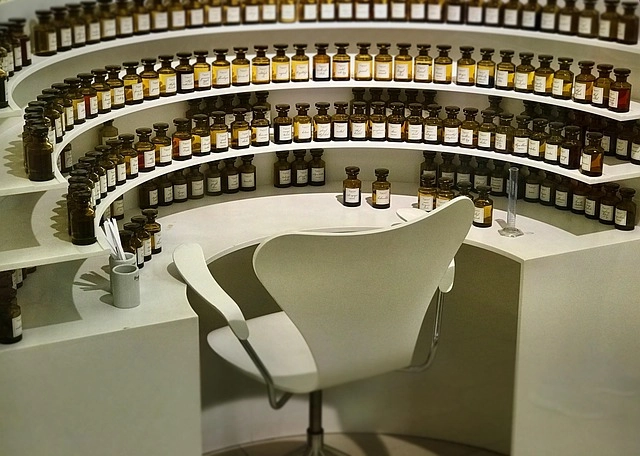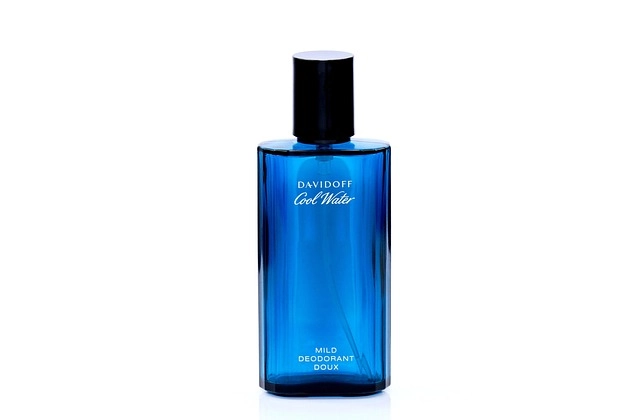Lancome Perfume blends natural essential oils from plants and synthetic compounds for unique scents. Natural options focus on ethically sourced ingredients for lower environmental impact. Synthetic fragrances offer consistency and intensity, with brands like Lancome skillfully integrating both for diverse offerings. Consumers increasingly prefer natural perfumes, driving industry towards sustainable practices. Lancome's high-quality, artisanal creations cater to this trend while ensuring luxurious scent experiences.
“Unravel the intricate world of scent with our comprehensive guide on natural versus synthetic fragrances. We explore the art and science behind creating scents, from understanding key differences to unmasking synthetic notes commonly used in perfumery.
This article delves into brands like Lancome’s natural perfume offerings, consumer trends, environmental impact, and tips for choosing authentic, high-quality fragrances. Elevate your scent knowledge and make informed decisions.”
- Understanding Natural vs Synthetic Scents
- The Art of Scent Composition
- Lancome's Natural Perfume Offerings
- Unmasking Synthetic Notes in Perfumes
- Consumer Preferences and Trends
- Environmental Impact Considerations
- Choosing Authentic, High-Quality Fragrances
Understanding Natural vs Synthetic Scents

In the world of fragrances, understanding the distinction between natural and synthetic scents is key to discerning a truly exquisite perfume or cologne. Natural scents are derived from essential oils extracted from plants, flowers, fruits, and spices. These ingredients are carefully sourced and distilled to capture the essence of their source, often with complex processes that preserve the scent’s authenticity. Think of iconic fragrances like Lancome Perfume, renowned for its lush floral notes that evoke a natural garden.
Synthetic scents, on the other hand, are created in a laboratory using chemical compounds designed to mimic natural aromas. While they might share similar olfactory profiles, synthetic fragrances offer a more consistent and often more intense experience due to their highly concentrated nature. Consider Lancome Cologne as an example of a synthetically crafted scent, offering a modern twist with notes that resonate across diverse seasons and occasions.
The Art of Scent Composition

The art of scent composition is a intricate process that combines science, creativity, and an exquisite sense of smell. It’s about crafting fragrances that evoke emotions, transport us to different places, and tell stories through scents. In the case of iconic brands like Lancome, perfumers meticulously blend natural and synthetic ingredients to create signatures that are both recognizable and unique. Each note plays a crucial role in the development of the scent, from the initial burst to the lingering base.
For instance, a signature fragrance like Lancome Perfume might feature top notes of citrus and fresh herbs, offering a vibrant opening; heart notes of floral blends for a rich, romantic middle; and base notes of warm woods or musk that linger, providing depth and longevity. The same artistic approach applies to Lancome Cologne, where careful consideration of scent profiles ensures the creation of aromas that resonate with wearers on a personal level, making them memorable and distinctive.
Lancome's Natural Perfume Offerings

Lancome, a renowned luxury cosmetic house, has expanded its fragrance offerings to include a range of natural perfumes that capture the essence of organic beauty. Their collections showcase a commitment to using high-quality, ethically sourced ingredients, ensuring a sensory experience free from synthetic additives. The brand’s natural perfume offerings cater to those seeking an alternative to conventional fragrances, where each scent tells a story of nature’s intricate details.
Delving into Lancome’s portfolio, one discovers a diverse array of scents, including both floral and woody notes. Their signature fragrances often blend delicate botanical extracts with rare essences, resulting in perfumes that are as unique as they are enchanting. For instance, the Lancome Cologne line features light, fresh notes that evoke a walk through a lush garden, while still maintaining a modern, sophisticated edge. These natural creations not only cater to personal taste but also contribute to a growing demand for sustainable and environmentally conscious beauty products.
Unmasking Synthetic Notes in Perfumes

The world of fragrances is a complex landscape, where natural and synthetic ingredients often intertwine to create captivating scents. Unmasking the subtle differences between these components is an art in itself. One popular brand that masterfully blends both natural and synthetic notes is Lancome Perfume. Their expertise lies in crafting aromas that not only delight the senses but also offer a unique olfactory experience.
When it comes to identifying synthetic notes, one of the key indicators is the presence of certain chemical compounds. For instance, Lancome Cologne often features artificial musks, which are known for their warm, earthy aroma. These musks are created in laboratories and mimic natural musk found in animals, providing a rich base note that enhances the overall fragrance. While synthetic musks may raise concerns about authenticity, they offer benefits like longer-lasting scent and consistent quality, making them a common element in many modern perfumes, including those from Lancome.
Consumer Preferences and Trends

In today’s market, consumers are increasingly discerning when it comes to their fragrance choices. The trend leans towards a preference for natural and organic scents, reflecting a wider movement in personal care. Many are seeking products that align with their values, including those that avoid synthetic ingredients. This shift is evident in the success of luxury brands like Lancome, known for its high-quality, natural-leaning perfumes. By appealing to this consumer base, these brands position themselves as eco-conscious and sophisticated choices, often with a focus on rare, ethically sourced ingredients.
When it comes to specific fragrances, Lancome’s offerings, both in perfume and cologne (such as Lancome Cologne), have gained popularity for their ability to capture natural scents while staying true to modern trends. Consumers appreciate the brand’s commitment to quality and its use of innovative yet natural techniques, ensuring that scents are not only pleasant but also environmentally friendly. This balance between trendiness and sustainability plays a significant role in shaping consumer preferences and continues to drive the success of brands like Lancome in the competitive fragrance market.
Environmental Impact Considerations

When considering whether a fragrance is synthetic or natural, it’s crucial to look beyond just the scent itself and examine its environmental impact. The production process of perfumes and colognes, like Lancome Perfume and Lancome Cologne, plays a significant role in determining their overall sustainability. Natural fragrances often rely on extracting essential oils from plants, flowers, and spices, which can be more environmentally friendly as they are renewable resources. On the other hand, synthetic fragrances involve complex chemical synthesis, requiring careful consideration of waste management and potential toxic byproducts.
In the case of Lancome Perfume and Lancome Cologne, brand transparency regarding their sourcing and manufacturing processes is essential. Many consumers are becoming increasingly aware of the environmental consequences of mass production, preferring products with minimal ecological footprints. Natural fragrances not only reduce the reliance on finite resources but also often have a lower carbon footprint due to reduced transportation needs and less energy-intensive extraction methods. This shift towards natural ingredients can be seen as a step towards a more sustainable future for the fragrance industry.
Choosing Authentic, High-Quality Fragrances

When it comes to choosing fragrances, selecting authentic, high-quality options is paramount for a luxurious scent experience. One renowned brand that embodies this is Lancome, known for its exquisite perfumes and colognes. By opting for Lancome Perfume or Lancome Cologne, you’re not just buying a fragrance; you’re investing in an artisanal creation crafted with meticulous care.
The key to distinguishing natural from synthetic scents lies in the ingredients. High-quality fragrances use pure essential oils sourced from plants, flowers, and fruits. These natural extracts contribute to the scent’s longevity and complexity. In contrast, synthetic fragrances rely on chemical compounds, which may offer a more affordable option but often lack the depth and authenticity of their natural counterparts. For example, Lancome carefully selects rare ingredients like rose or oakmoss in their compositions, ensuring an aromatic journey that is both delicate and enduring.
